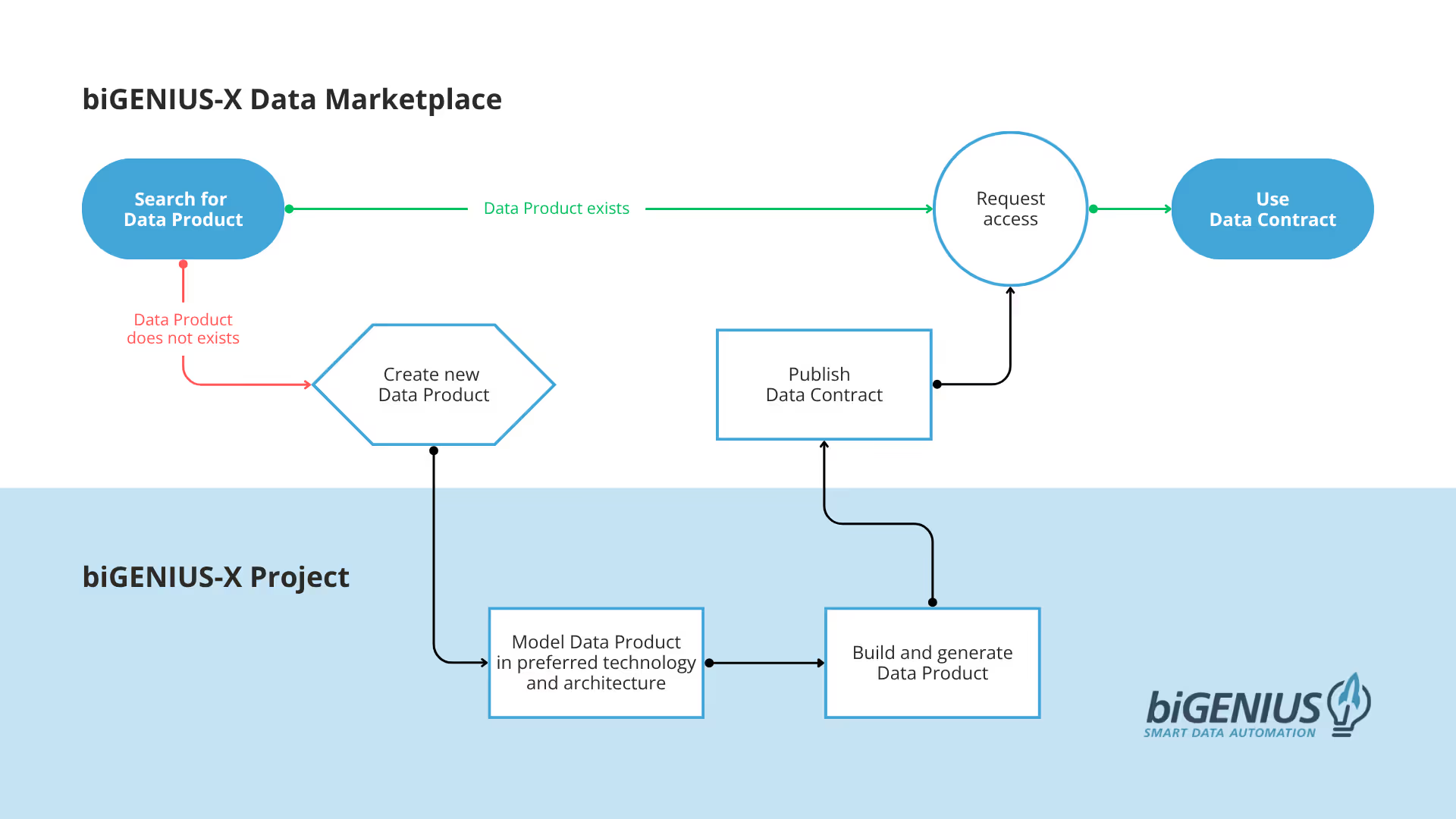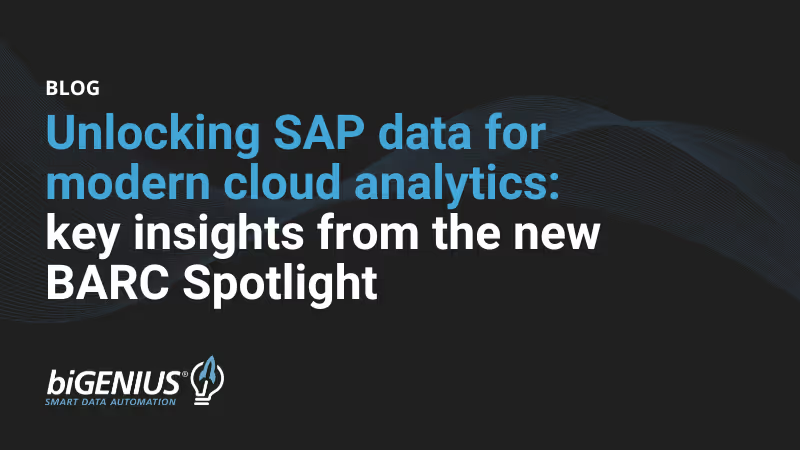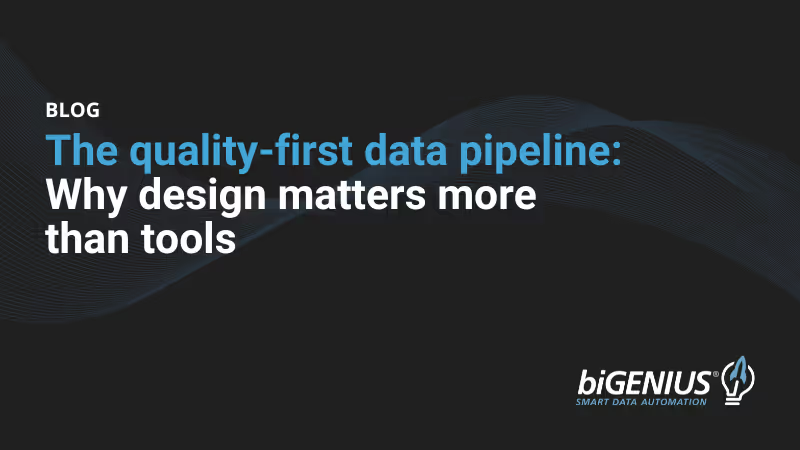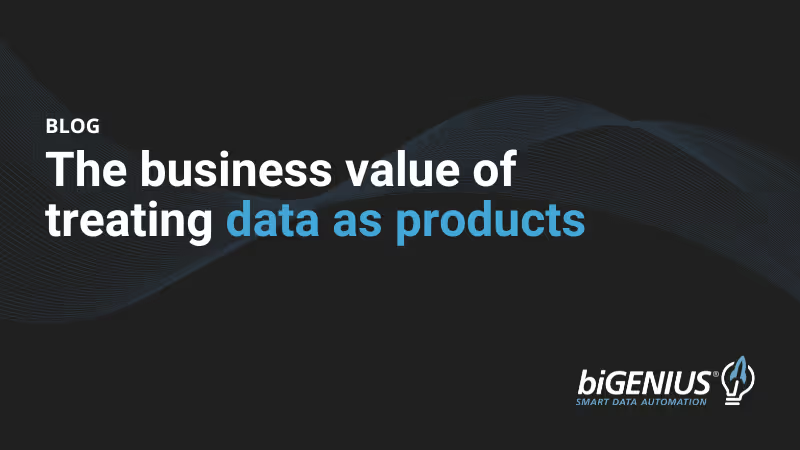Organizations convinced of the data product value proposition face a practical challenge: how do you implement this approach at enterprise scale without creating overwhelming operational overhead?
The answer lies in automation and reusability: manual data product management where each dataset requires independent modeling, quality assurance, documentation, and deployment processes quickly becomes unsustainable. The successful implementation of the data product strategy requires a platform approach that makes data product development scalable and collaborative.
The biGENIUS-X solution: automation & data marketplace
biGENIUS-X addresses the implementation challenge through two integrated capabilities that transform data development from isolated project activities into collaborative enterprise ecosystems where each new product potentially supports multiple future initiatives:
Comprehensive lifecycle automation: Teams define data products through visual modeling interfaces while the platform automatically generates all required code, documentation, and deployment artifacts. This eliminates manual coding, reduces errors, and ensures consistent implementation standards across all data products.
Centralized data marketplace: A searchable catalog of production-validated data products that enables teams to discover, import, and adapt existing solutions rather than building from scratch.
How the biGENIUS-X Data Marketplace accelerates development
Eliminates duplicate work
Before starting new development, teams search the Data Marketplace for existing assets that meet their specifications. Rather than developing customer segmentation models from baseline requirements, teams import existing products, apply necessary customizations, and deploy solutions within days rather than months.
Enforces enterprise standards
All published components are created using the biGENIUS-X generator framework, ensuring automatic alignment with organizational modeling standards, governance requirements, and platform specifications. This built-in consistency improves maintainability and reduces integration issues.
Enables federated collaboration
Domain teams work independently while contributing to a shared resource that benefits the entire organization. This supports data mesh principles by balancing team autonomy with enterprise consistency.
Provides lifecycle visibility
Version control and lifecycle tracking allow users to understand how published artifacts evolve. Teams can determine when updates are available and whether their implementations remain current with organizational standards.

Implementation in practice: Customer dimension example
Consider this real-world scenario where your Finance team develops a comprehensive customer dimension using biGENIUS-X, including standardized keys, complete lineage, and automated documentation. They publish the data contract to the Data Marketplace.
Later on, your Marketing team needs customer behavior analytics. Instead of rebuilding customer logic, their data team:
- Search the biGENIUS-X Data Marketplace and find Finance department's customer dimension (data product)
- Import it into their biGENIUS-X Project (modeling environment)
- Extend it with behavioral attributes specific to their requirements
- Deploy within days with guaranteed alignment across domains
Thereafter, your Sales team discovers both Finance and Marketing customer data products in the Data Marketplace, from which they combine elements for their own forecasting model, and deploy within a week.
In this scenario, all three teams benefit from shared foundational work, while each maintains autonomy over their specific requirements.
Technical implementation
Integration with existing systems
The Data Marketplace integrates directly with biGENIUS-X development workflows. All teams can:
- Browse available data products without leaving the biGENIUS-X application
- Import data products with full metadata and lineage information
- Customize imported data products using the same GUI
- Deploy to your preferred target platforms (Snowflake, Databricks, etc.)
Governance and quality control
Data products undergo comprehensive automated validation to ensure enterprise readiness, including schema compliance verification guarantees compatibility with organizational standards, while data lineage verification confirms proper source system connections.
Getting started
Phase 1: Foundation building
- Identify high-value, frequently-used data entities (customers, products, transactions)
- Model these using biGENIUS-X with comprehensive documentation
- Publish to the Data Marketplace as foundational building blocks
Phase 2: Adoption acceleration
- Train teams on the Data Marketplace import capabilities
- Establish governance processes for quality standards and publication approval
- Create incentives for teams to both contribute to and consume from the Marketplace
Phase 3: Enterprise scale
- Expand the catalog to cover all major business domains
- Implement advanced features like automated dependency management
- Develop organizational expertise in data product management methodologies
Conclusion
The biGENIUS-X Data Marketplace transforms the theoretical benefits of data products into practical, scalable implementation. By combining automation with collaborative reuse, organizations can achieve the speed, quality, and cost benefits of data products without the operational complexity that typically accompanies such initiatives.
For data leaders ready to move beyond strategy to execution, the biGENIUS-X Data Marketplace provides the technological foundation necessary to implement data products successfully at enterprise scale, where teams can create, model, and manage data products on the same comprehensive platform.






